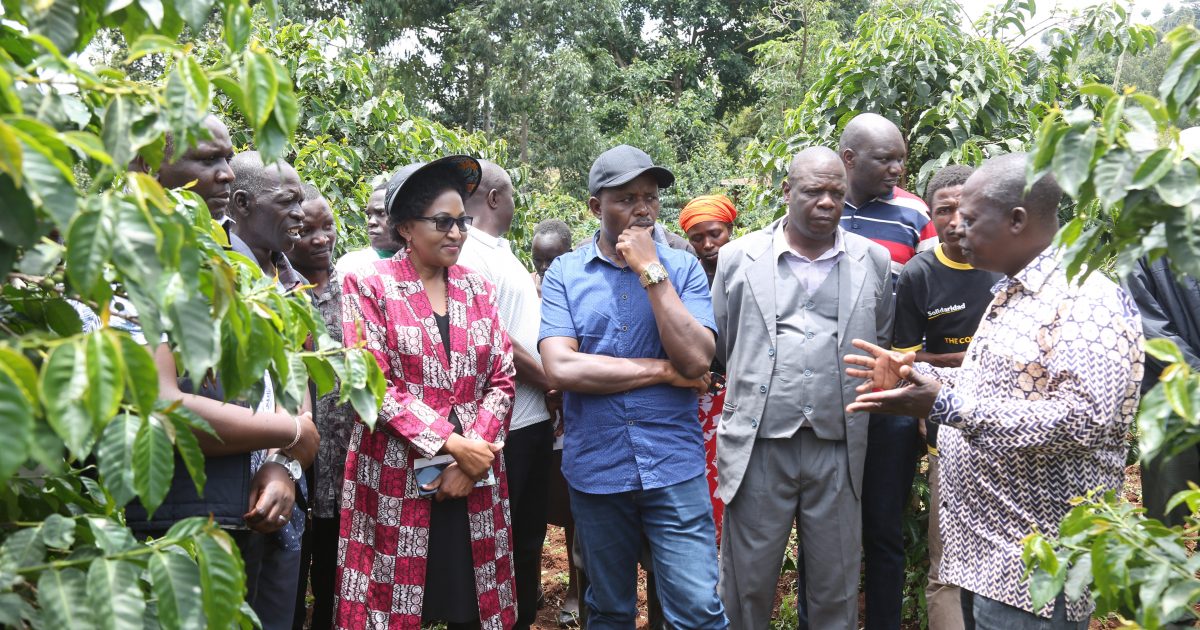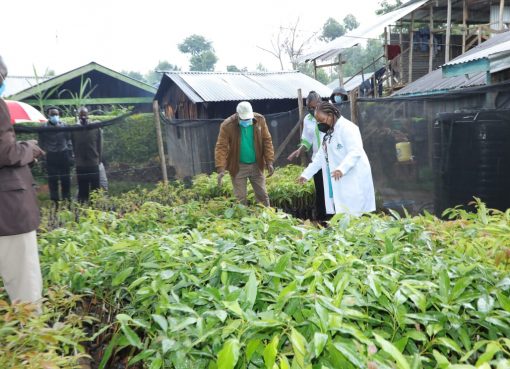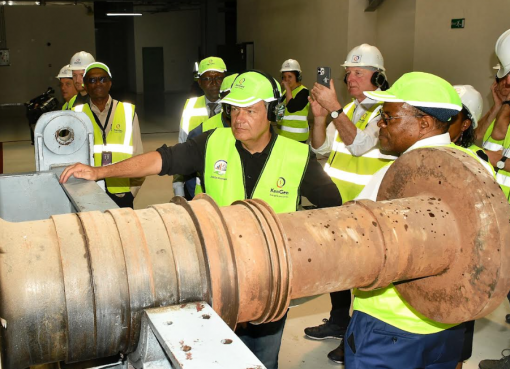Coffee farmers in Trans Nzoia are set to benefit from trainings and low cost seedlings as the county government promotes diversification to end over-reliance on maize production.
Governor George Natembeya affirmed that he is committed to revitalise the agricultural sector through reforms and addressing challenges that bedevil the farmers in the county.
Speaking at Muroki in Saboti Sub County where he led coffee farmers in celebrating the World Coffee day, Natembeya urged stakeholders in the sub sector to engage all value chain players.
He called on both small and large scale coffee producers, cooperative societies, millers, roasters and agro dealer to work closely as his administration implements plans and strategies to support producers.
“The county with support of stakeholders like Solidaridad is making efforts to address some of the challenges,” pointed out the governor.
He added that the interventions include capacity building of individual farmers and cooperative societies on good agricultural and manufacturing practices, trainings and field days.
Natembeya noted that this has helped enhance the farmers’ knowledge on technologies, innovations and management practices on coffee.
The county has a total of 3910 small scale coffee farmers, and 327 small, medium and large coffee estates with an estimated 2655 hectares under coffee production.
The county chief however noted that the potential area for coffee production is 10,000 hectares adding that there was need to utilize the full potential to increase earnings from the sub sector.
With 22 active cooperative societies and one coffee union, at least 17,992 people in the county derive their livelihoods directly from coffee at the farm level with thousands others benefiting indirectly.
Citing low production, inadequate value addition, high cost of production, narrow markets and inadequate affordable credit and infrastructure besides negative impacts of climate change as some of the challenges in the sub sector, Natembeya pledged support in mitigation.
He however disclosed that the sub sector had improved with 786 metric tons of clean coffee worth Sh500 million produced in 2021 up from the 749 metric tons produced in 2020.
With Kenyan coffee preferred internationally for its unique quality, Natembeya observed the need to pump in more efforts to promote its production adding that as the third foreign exchange commodity, it was bound to earn the country much in foreign exchange.
“These unique conditions are reflected in the superior Kenya coffee cup characteristics. The balanced acidity, full bodied, rich aroma, fruity citrus flavours, the list is endless,” he said adding that the characteristics endear Kenya’s coffee to roasters for blending coffee from other destinations.
Natembeya was accompanied by the County executive for Agriculture Mary Nzomo and stakeholders in the coffee sub sector in the celebrations that seek to recognize the efforts of companies dealing in coffee and to promote fair trade in the industry.
The annual event also aims at appreciating coffee farmers around the globe while helping raise awareness on the plight of coffee farmers.
By Kosuri Valarie





